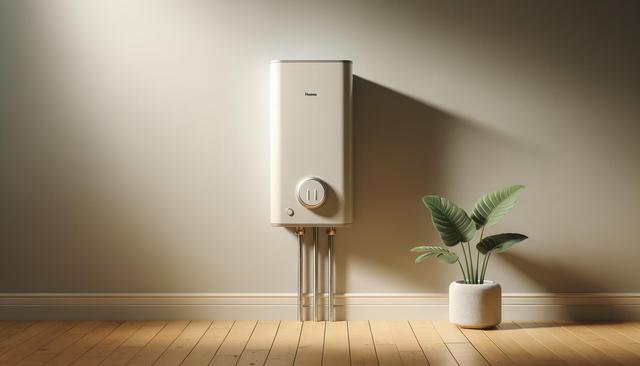Understanding the Types of Water Heaters
When considering your next water heating system, it’s important to start by understanding the different types available on the market. Each type caters to different household sizes, usage patterns, and energy sources. The most common water heaters include storage tank heaters, tankless (on-demand) models, heat pump water heaters, and solar-powered systems. Storage tank heaters are widely used and typically store 30 to 80 gallons of hot water, making them suitable for families with consistent hot water needs. Tankless water heaters, on the other hand, heat water only when needed, which can reduce energy consumption and free up space.
Heat pump models use electricity to move heat from the air or ground to heat water, offering a more energy-efficient alternative. Solar water heaters utilize energy from the sun and are ideal for homes in sunny climates, though they usually require a backup system for cloudy days. Each of these systems has unique benefits, and understanding how they align with your household’s requirements is the first step toward making an informed decision.
Factors to Consider Before Buying
Before purchasing a new water heater, several factors should be evaluated to ensure it fits your needs and operating conditions. One of the most important considerations is the size of the unit. For tank-based systems, this means choosing a capacity that matches the number of people in your home and their typical water usage. For tankless systems, it involves calculating the flow rate and peak demand to determine how many fixtures can run simultaneously without losing temperature consistency.
Energy efficiency is another key factor. Look for units with a high energy factor (EF) or uniform energy factor (UEF) rating, which indicates better performance and lower energy costs. Additionally, consider installation space and compatibility with existing plumbing. Some units, especially heat pump heaters, require more room for airflow. It’s also wise to think about long-term maintenance and availability of replacement parts. A few important points to review include:
- Energy source (electricity, gas, hybrid, or solar)
- Initial cost vs. long-term operating cost
- Warranty and service availability
- Local climate and water quality
Benefits of Upgrading to Modern Systems
Upgrading to a newer water heater model offers several advantages, ranging from improved energy efficiency to enhanced user comfort. Modern systems are designed with advanced technology that allows for better temperature control, reduced standby heat loss, and smart operation through mobile apps or home automation systems. This means users can monitor and adjust their water heater remotely, set schedules, and even detect leaks early through connected sensors.
Many of the latest models are also built with eco-friendliness in mind. For example, condensing water heaters reuse exhaust gases to heat water more efficiently, reducing greenhouse gas emissions. Heat pump and solar units significantly cut down on electricity usage, which not only contributes to a lower carbon footprint but may also qualify for local utility rebates or tax incentives. Upgrading can also lead to:
- Lower monthly utility bills
- Greater reliability and less frequent repairs
- Increased property value
- Quieter operation and space-saving designs
Installation and Maintenance Tips
Proper installation is critical to the performance and longevity of a water heater. Whether hiring a professional or tackling it as a DIY project, following local building codes and manufacturer guidelines is essential. Improper installation can lead to inefficiency, safety hazards, or voided warranties. For electric and gas heaters, ensuring correct venting and electrical connections is key, while solar systems may require roof assessments and additional plumbing.
Once installed, regular maintenance helps extend the life of your system. This includes flushing the tank to remove sediment (for storage models), checking the anode rod for corrosion, and cleaning the inlet screen on tankless units. For heat pump systems, keeping the air filter clean ensures optimal heat transfer. A few maintenance tasks to routinely perform include:
- Annual inspection by a professional technician
- Testing the pressure relief valve
- Inspecting for leaks or rust around the unit
- Updating software if using smart systems
By staying on top of these tasks, homeowners can avoid unexpected breakdowns and ensure their water heater runs efficiently year-round.
Cost Considerations and Long-Term Savings
While the initial cost of a new water heater can vary widely depending on the type and features, it’s important to look at the total cost of ownership. This includes installation, energy use, maintenance, and potential repairs over the lifespan of the unit. For example, tankless models often have a higher upfront cost but make up for it with lower energy bills and a longer lifespan compared to traditional tank units.
Incentives and rebates can also offset the cost of energy-efficient models. Many utility companies and government programs offer financial assistance for upgrading to environmentally friendly systems. Additionally, modern units often come with extended warranties, which can reduce long-term repair costs. When weighing options, consider the following financial aspects:
- Estimated annual energy savings
- Rebates or tax credits available
- Lifespan of the unit compared to alternatives
- Maintenance requirements and service costs
By taking a holistic view of both immediate and future expenses, homeowners can make a cost-effective choice that delivers comfort and reliability for years to come.
Conclusion: Making an Informed Decision
Choosing the right water heating system is a significant decision that affects your daily comfort, monthly expenses, and long-term home value. By understanding the different types of heaters, evaluating your household’s needs, and considering both upfront and ongoing costs, you can select a model that delivers both efficiency and performance. Whether you’re replacing an aging unit or upgrading for greater energy savings, the latest water heaters offer dependable solutions tailored for modern lifestyles. With proper installation and routine maintenance, your investment can provide consistent hot water and peace of mind for many years ahead.




Leave a Reply